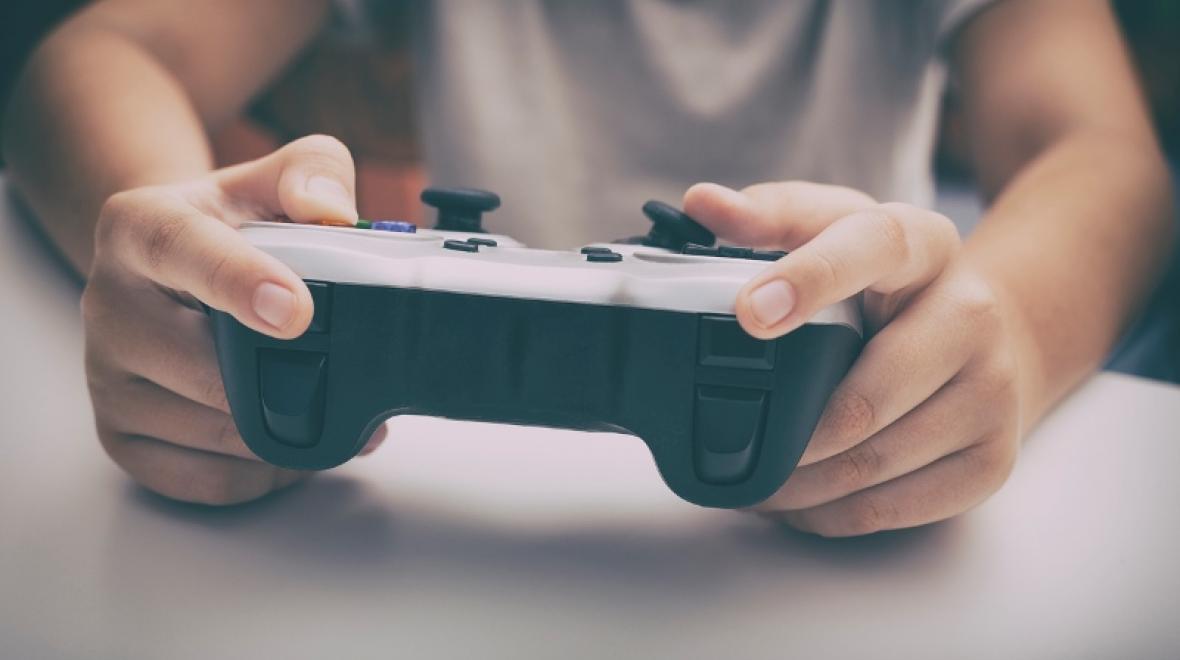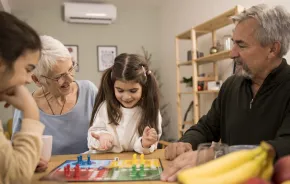
“Did you see that?” asked my husband in a hushed voice.
As our three kids ate dinner, my husband and I examined our 12-year-old son’s face. We observed in a clandestine manner in order to not influence his reaction.
It was unmistakable. My son’s eyes moved in a diagonal direction up towards his forehead every five minutes as he ate his spaghetti. The subtle motion was only noticeable if you paid attention. I scheduled an appointment with his doctor.
“Does he play video games?” asked the doctor.
“Yes.”
“How many hours per day?”
I squirmed, avoiding eye contact. I didn’t even know an exact number but I knew it was higher than a doctor would recommend.
“Uh... I’m not really sure, but probably too many.”
That was all the information the doctor needed. My son playing video games was probably causing the eye tics. He recommended a month fast from all video games to see if that eliminated it.
I’m not sure who was more upset about this prescribed fast from electronics — my son or me. I had removed video games in the past as a punishment and it never went over well. He moped around while I felt badly about taking them away. (For the most part, he is a well-behaved kid who gets good grades, so it’s hard for me to see him upset.)
At home, we boxed up the gaming system and iPad (he didn’t have a phone) to remove temptation. Then we looked at each other and I thought to myself, “Okay, now what are we going to do?”
“Do you want to play Clue?” I asked. It was my favorite board game growing up and one of the few I can still tolerate.
“Sure.”
His twin sister and 9-year-old sister joined us. As we played, I thought, “I can’t remember the last time he socially interacted with the family like this.”
My daughters have occasionally played video games but never for hours, as their brother would when allowed. Because of their lack of interest in electronics they did not participate in the fast. My husband and I also didn’t take an electronics break as we are not big tech fans (my husband still has an iPhone 4, and the last video game I played was in 1985, when the original Super Mario Bros. debuted).
The first few weeks: Getting a Clue
The first week was challenging for our son, but despite being bored at times, he never asked if he could use electronics. I think he understood that this wasn’t a punishment, but a way to encourage him to have a healthier lifestyle.
As the weeks progressed it became easier. He figured out more ways to entertain himself, such as reading books, joining a pickup basketball game with the neighbors, or, yes, playing Clue. We ended up continuing the fast for an additional month because we were so pleased with the results.
When he ate a meal he no longer wolfed it down in an attempt to quickly return to his paused video game.
I enjoyed interacting with my son without the distraction of a nearby screen. When my mother came to visit, she loved that he asked her to play Clue instead of staying attached to a device.
I noticed other differences. As the doctor predicted, his eye tic disappeared. When he ate a meal he no longer wolfed it down in an attempt to quickly return to his paused video game. He also slept more hours at night and seemed less moody.
For me, the biggest benefit of this experiment was not having to negotiate electronic use. When I said, “It’s time for dinner,” I didn’t need to repeat it three times before he answered. I never had to say, “You played enough video games today. Please find something else to do.”
The end game
Despite these improvements we did let him return to video games after the two months were over because it's such a key social activity between him and his friends. He continues to be well-behaved and earns honor roll at school. At first, we limited him to one hour per day but unless I enforce it, he easily plays for a longer amount of time.
With summer approaching, we are considering another fast or stricter screen limits. I don’t think he would want to fast again, but he is such an easygoing boy he probably would without an argument.
It’s too easy for all of us to let him play for hours without realizing it. If it isn’t an option then he finds other things to do — like a game of Clue, or time spent outside.











